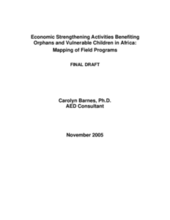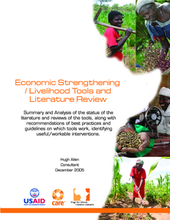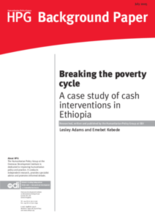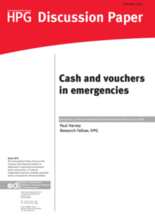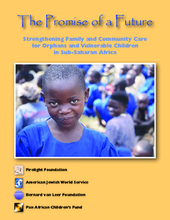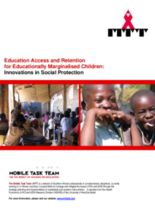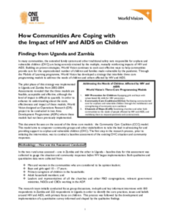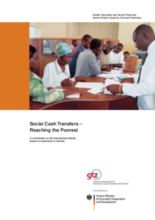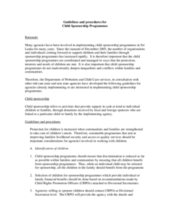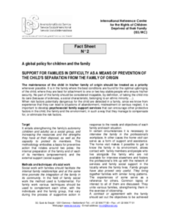Displaying 411 - 420 of 461
This paper identifies programs in sub-Saharan Africa focused on economic strengthening interventions, and analyzes their approaches and impact on orphans and vulnerable children. Interventions focused on savings and lending groups, micro-leasing, market linkages and household gardening appear to be particularly effective.
Summary and analysis of the status of the literature and reviews on economic strengthening and livelihood tools. Contains recommendations of best practices and guidelines on which tools work.
This paper examines the role, process and impact of cash transfer interventions in Ethiopia using several case studies. Challenges and recommendations for future cash interventions are discussed in-depth.
Examines the use of cash and vouchers to provide people with assistance in emergency situations
A brief document advocating for the strengthening and support of community based responses to children and families affected by HIV/AIDS in Africa.
This paper provides a comprehensive contextual overview of the educational challenges faced by orphans and vulnerable children in sub-Saharan Africa. It includes recommendations for future education policy in the context of HIV and AIDS, as well as provides country specific data on current policies and social protection programs.
Assessment of pilot programs employing World Vision Community Care Coalition model in Uganda and Zambia.
This paper explores the role and process of social cash transfers to reduce poverty and provide social protection. It examines a pilot cash transfer program in Zambia.
Outlines specific guidelines for targeting, sponsor contact, benefits, and monitoring in child sponsorship programmes in Sri Lanka.
Brief summary of the importance of social work in preventing family separation, including increasing empowerment, social support and self-assessment processes.

